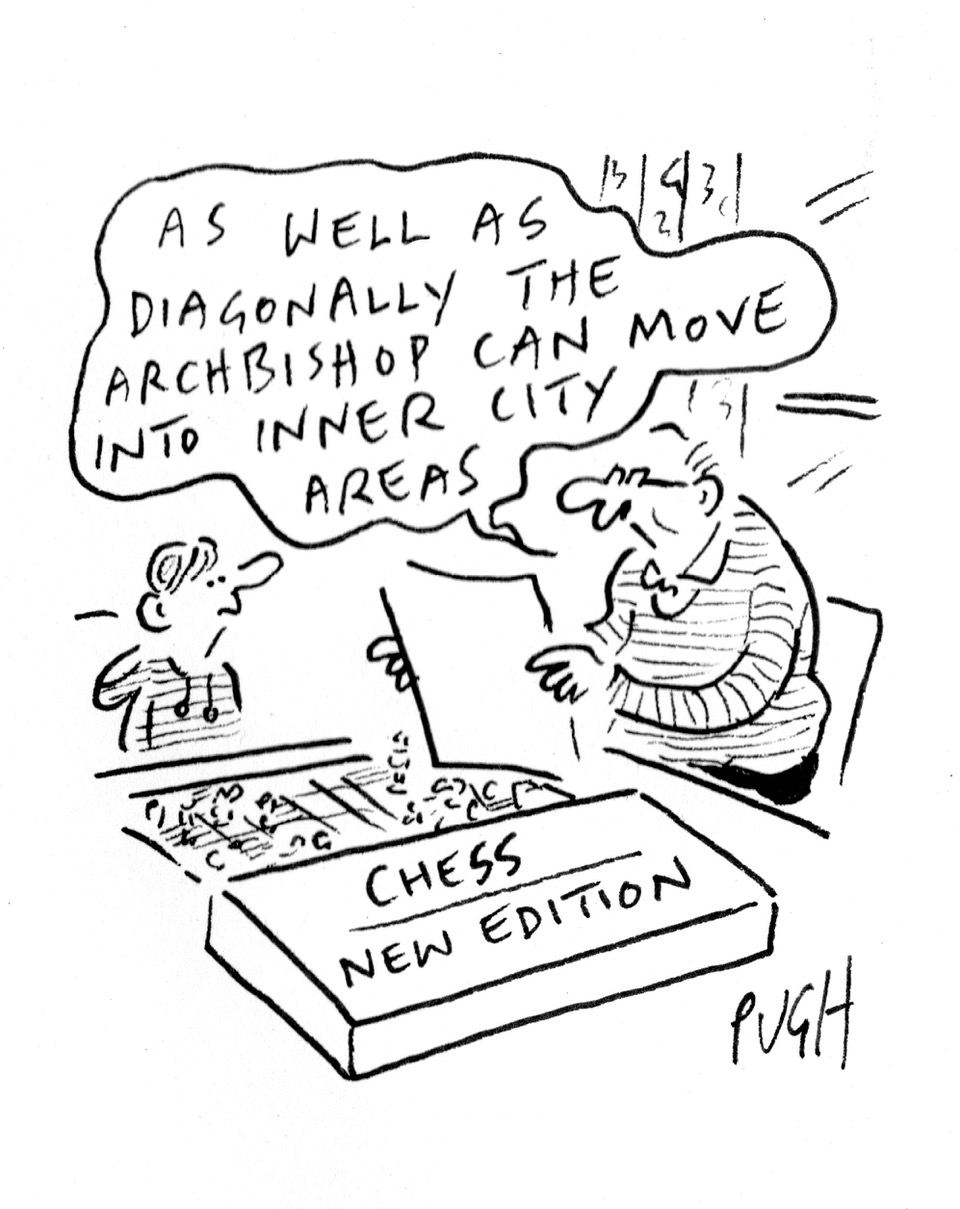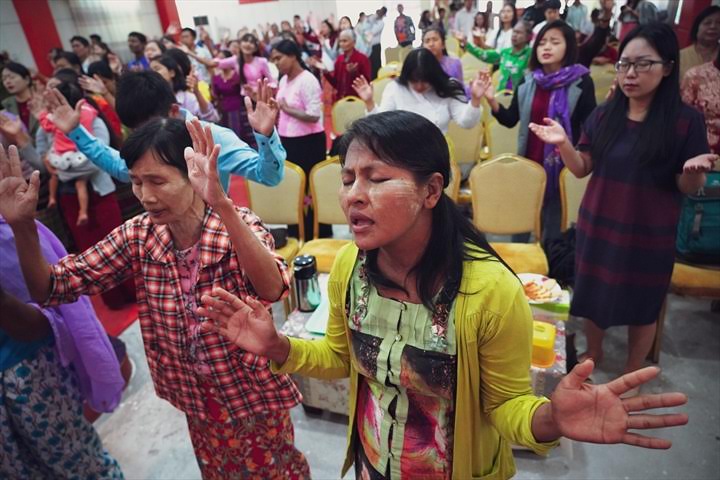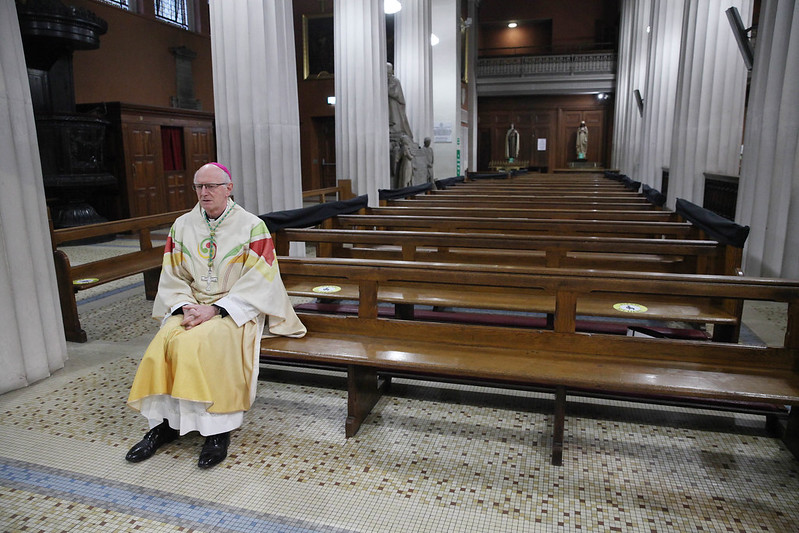Archbishop Dermot Farrell began his first homily as Archbishop of Dublin by acknowledging his gratitude to the clergy, religious and lay faithful.
Speaking at his installation ceremony at St Mary’s Pro Cathedral in Dublin on World Day of Consecrated Life, the new Archbishop of Dublin said it was an occasion to “thank the Lord for the gift of lives given to God – lifetimes of service, of commitment to the service of the Gospel and the mission of the Church, and of prophetic witness to the presence and significance of Jesus”.
“The women and men who dedicate their lives to the call of the gospel are at the heart of life of our Church. Without their service, without the presence of their communities, our Church would be a very different Church. They have been at the forefront of renewal in the Church, taking bold initiatives, and making significant sacrifices.”
His affirmation of religious follows two damning reports in January on mother and baby homes on both sides of the Irish border, some of which were run by religious congregations.
The 66-year-old successor to Archbishop Diarmuid Martin said that in another age, religious were at the forefront of addressing the educational, social, and health of those who risked being left behind. Today they continue their “prophetic ministry” in the service of those whom society might prefer not to see: those who suffer from addiction, those who struggle to put food on the table, women trafficked, those without a roof over their heads, or a front door of their own, he said.
“Everyone in this diocese – laity, priests and deacons, religious, all who embrace apostolic charisms, as well as the women and men called to a more contemplative way – has something essential to contribute to the future of the faith in Dublin,” he told an empty Pro Cathedral.

The scaled back ceremony was concelebrated with Archbishop Martin and the Papal Nuncio, Archbishop Jude Okolo, and was restricted to just ten people. As the largest catholic diocese in Ireland, the occasion would ordinarily have drawn religious and public representatives. Instead, Archbishop Farrell’s family and priests and people of Dublin watched proceedings online via the cathedral webcam.
Speaking after the ceremony to the Tablet, Archbishop Farrell called for greater flexibility in the roll-out of Covid vaccines so that elderly religious living in unregistered congregated settings for older people are included as a priority as well as children with disabilities returning to school.
Earlier this week, the Irish Independent revealed that care settings catering for elderly members of religious orders, but which are outside the remit of the Health Information Quality Authority (Hiqa), have not been listed for first phase of the vaccination roll-out covering people aged over 65 who live in long-term settings.
This covers public and private nursing homes that are Hiqa-registered providers of care.
However, some nuns and priests in their 80s and 90s are being cared for by privately contracted healthcare workers and nurses and these care settings had outbreaks of Covid-19 last year and deaths occurred as a result.
Elsewhere in his homily on Tuesday, Archbishop Farrell said the Church faces a “formidable task” in passing on a “life-giving faith” to the next generation but stressed that it must “embrace the future”.
The former Bishop of Ossory warned against defending the status quo because that is the way things have always been done.
“Rather than being focused short-sightedly on the glory of the past, and the magnificent institutions which our sisters and brothers before us built – we need to accept the responsibility of mission as we experience it now,” he said.
“It is how we embrace this mission that is going to make the difference. We can only do this together. Walking together is the way of community.”
He stressed that the Church of the future will have to be a synodal church and that the active participation of the laity will be “essential” as they constitute the vast majority of the people of God.
“We will have to be a Church that listens to the faithful people of God, the priest, the bishop, the Holy Father; all listening to each other; all listening to the Holy Spirit.”
“In this light, leadership in the Church is not about telling people what to do; rather it is about promoting co-responsibility and overcoming the mindset which runs the risk of relegating the baptised to a subordinate role, effectively keeping them on the edges of Church life.”
In a synodal Church, the first place synodality is expressed is at parish level and if it doesn’t happen in the parish, it will not happen at all, Archbishop Farrell warned.
He admitted that there was no pre-packaged plan to address the reality in which the Church in Dublin finds itself but that it must involve re-building parishes that are marked by welcome, openness, forgiveness, resilience, and courage.
Referring to writer LP Hartley’s famous quote, he gave it a new twist saying: “The future is a different country, we must do things differently there.
“This is not to forget the past, and especially not the painful past where so many were hurt. We must never again put what we consider the needs of the Church before the needs of the little ones.”
He said this time – the crisis of the global pandemic and the many crises confronting the Church – “this very time, with all its frustration and fear, is rich with possibilities, already carrying the future, overflowing with Christ”.



 Loading ...
Loading ...